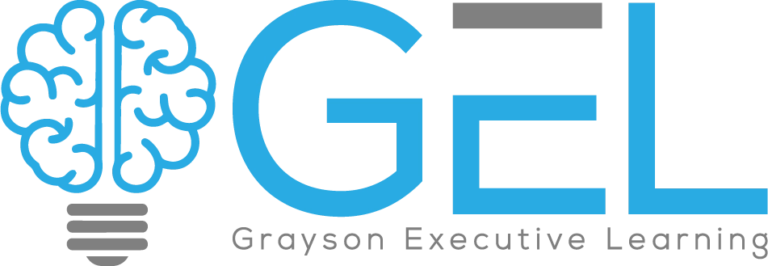Your teen wants to succeed. So why does everything feel so hard right now?
They have dreams. They care about school. They promise they’ll study after dinner. But the backpack stays closed. The essay doesn’t get written. And the motivation they swore they had this morning? It disappears by sunset.
If you’re watching your teen struggle with procrastination, anxiety, or emotional meltdowns, you are not alone. According to USA Today, more than 25 percent of teenagers report feeling “extreme stress” during the school year. Many smart, well-intentioned teens and young adults find themselves stuck in cycles of avoidance and self-doubt. And as a parent, it can be heartbreaking to witness, especially when your efforts to help only seem to push them further away.
That is where life coaching can make all the difference.
What Is Life Coaching for Teens and Young Adults?
Life coaching is a forward-focused, action-oriented process that helps teens and young adults build critical life and executive function skills. It is not therapy. It is not tutoring. It is a partnership that helps students develop self-awareness, set meaningful goals, and learn the practical tools to meet them.
At Grayson Executive Learning, our coaching is grounded in empathy and guided by science. We meet students where they are, whether they are battling academic stress, struggling to organize their time, or simply feeling stuck, and help them move forward step by step.
Why Teens Struggle Even When They Want to Do Well
Let us name what is really going on:
- Executive function challenges make it difficult to prioritize tasks, plan ahead, or switch between assignments.
- ADHD and anxiety can hijack motivation and drain mental energy.
- Academic and social pressures pile up faster than coping skills can grow.
- Normal developmental changes like craving independence make teens less likely to ask for help.
These challenges do not mean your teen is lazy or unmotivated. They mean your teen needs structure, tools, and support delivered in a way that respects their need for autonomy. As mentioned in our previous blog posts, nearly one in six adolescents has experienced a serious mental health disorder, further highlighting the urgent need for proactive support.
How Life Coaching Helps Teens Move Forward
At GEL, we focus on building the skills that lead to long-term independence:
- Time Management: Breaking down assignments, estimating how long tasks will take, and using calendars and timers.
- Emotional Regulation: Naming emotions, understanding triggers, and practicing coping strategies like breathing techniques or movement breaks.
- Self-Advocacy: Teaching students how to communicate with teachers, ask for extensions, or clarify expectations.
- Goal-Setting: Helping students define what matters to them and outline concrete, achievable steps.
- Follow-Through: Building systems that keep students accountable without relying on parental reminders.
- Metacognitive Awareness: Increasing self-awareness of what is and isn’t working as well as drawing connections between actions and consequences, as well as inactions and consequences.
A study shared by Empower U reveals that confidence and self-esteem are skills that can be learned and retained when supported early. Coaching helps teens build these strengths from the inside out.
What Makes the Coaching Relationship Work
What we hear most often from parents is this: “My child just won’t listen to me anymore.”
That is developmentally appropriate. Teens are wired to push for independence. But that does not mean they do not need guidance. They just need it from someone who is not their parent.
Our coaches are trained to build trust, offer structure, and guide students through tough moments without judgment. We are not disciplinarians. We are partners. Through regular sessions, we become a stable source of support and accountability that your teen can rely on.
A Real-Life Example
Sophie, a high school junior, was missing homework deadlines weekly. Her grades were slipping, and each late assignment triggered a spiral of anxiety. During our sessions, we worked on using a digital calendar, breaking projects into daily steps, and setting gentle check-ins. Within two months, she was submitting work on time and starting to rebuild her confidence.
Her mom later shared, “For the first time in ages, I do not have to be the bad guy. I can just be her mom again.”
Skills Teens Build with Coaching
Coaching provides a space where teens are seen, heard, and supported. Skills include:
- Organization: Knowing what to do and when to do it.
- Prioritization: Making choices based on values and deadlines.
- Confidence: Learning to believe in their ability to succeed.
- Problem-Solving: Understanding how to evaluate options and take smart risks.
- Emotional Intelligence: Identifying feelings and choosing responses.
Through techniques like goal-mapping, journaling, digital tools, and reflective conversations, teens gain ownership of their actions and choices.
Coaching vs. Therapy: What is the Difference?
Therapy often focuses on healing past trauma. Coaching, on the other hand, is about forward movement. It is about helping your teen learn how to take action, build routines, and grow independence.
That is not to say the two are mutually exclusive. Many families work with both a therapist and a coach, especially when emotional or behavioral challenges overlap with academic struggles.
What Parents Can Expect
Coaching with GEL is structured, transparent, and collaborative:
- We start with a parent and student consultation.
- Each session focuses on working towards specific skills and goals.
- Parents receive concise updates on wins, challenges, and next steps.
- We gradually shift responsibility to the student as they build confidence and systems that work.
We also collaborate with therapists, educators, and support teams when needed. This ensures your teen’s whole support system is aligned and working together.
When to Consider Life Coaching
Life coaching may be the right fit if your teen or young adult:
- Avoids tasks until the last minute
- Shuts down emotionally when facing stress
- Seems capable but underperforms
- Struggles with transitions like entering high school or starting college
- Resists help from parents but responds better to outside support
Whether the goal is finishing college applications, improving grades, or simply gaining a sense of control over their day, coaching offers a path forward.
Coaching Success Stories
From our many years of working with students, one thing stands out across every case: when coaching clicks, teens feel empowered.
A student who had withdrawn from life due to anxiety learned simple strategies that helped her re-engage socially and academically. Another student, previously stuck in gaming and isolation, began organizing their schoolwork and setting job goals after just a few coaching sessions.
Life coaching helped these young people reconnect with their purpose, and with the adults who care about them.
Why Grayson Executive Learning
What sets us apart is our emphasis on personalized coaching plans backed by research. Every coach at Grayson Executive Learning holds an advanced degree and training in executive function and behavior change. We do not give teens cookie-cutter advice. We build a relationship, a plan, and an ongoing support structure designed just for them.
Take the Next Step
At Grayson Executive Learning, we believe every student deserves a clear path forward. Not more lectures. Not more pressure. Just support that works.
Schedule a free consultation today. Let us talk about where your teen is, what is working, what is not working, and how we can help them move from overwhelmed to confident, one step at a time.


